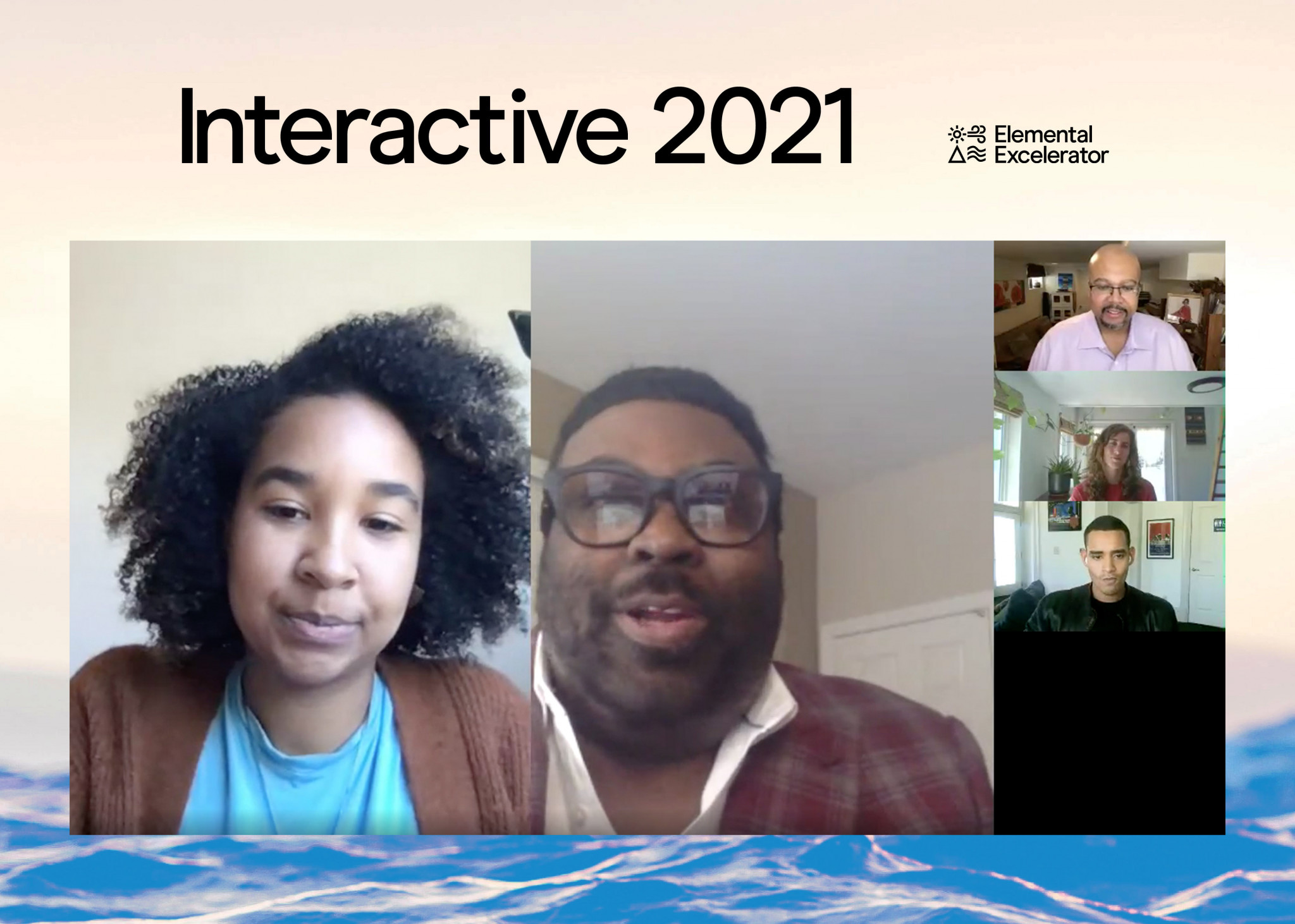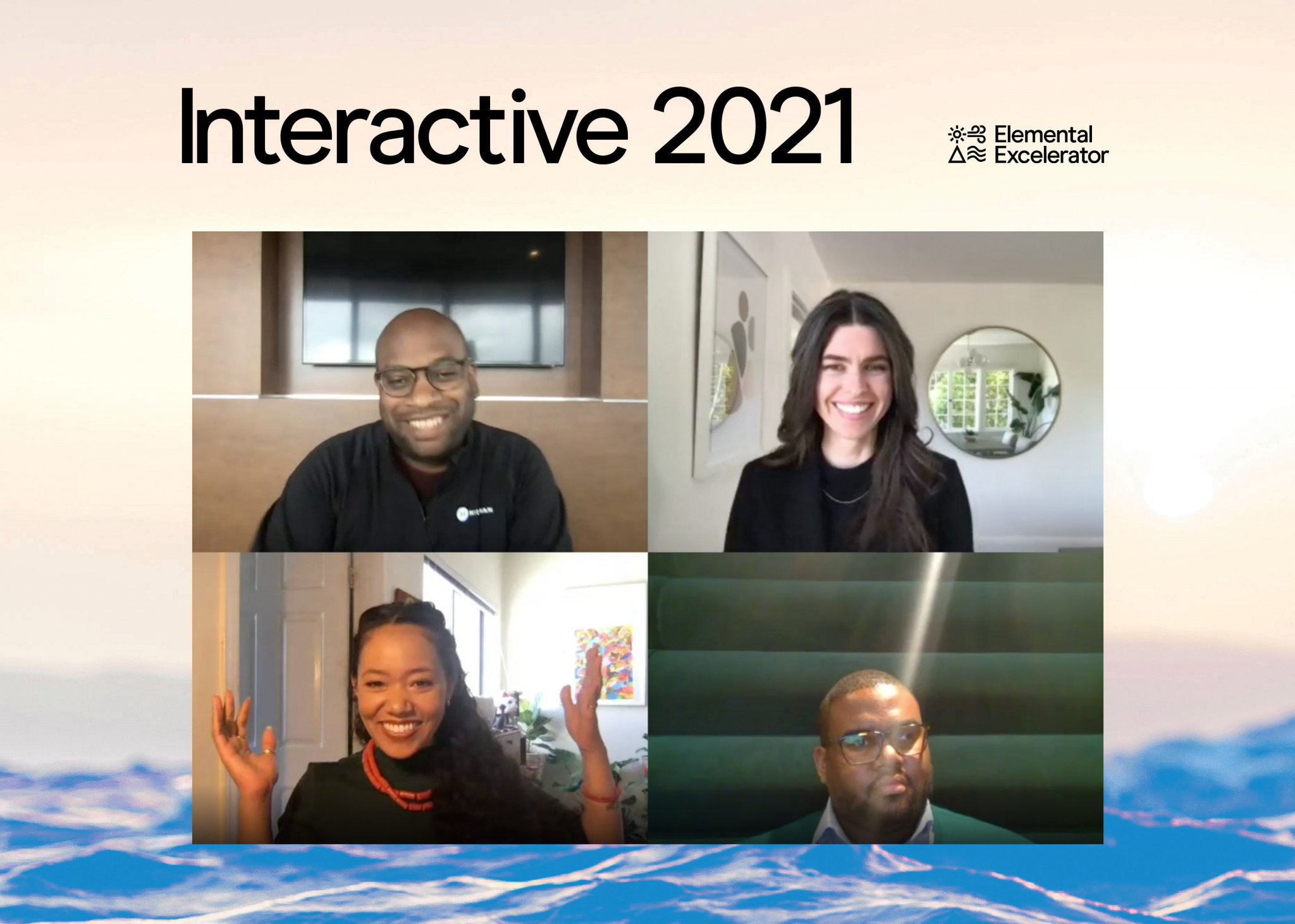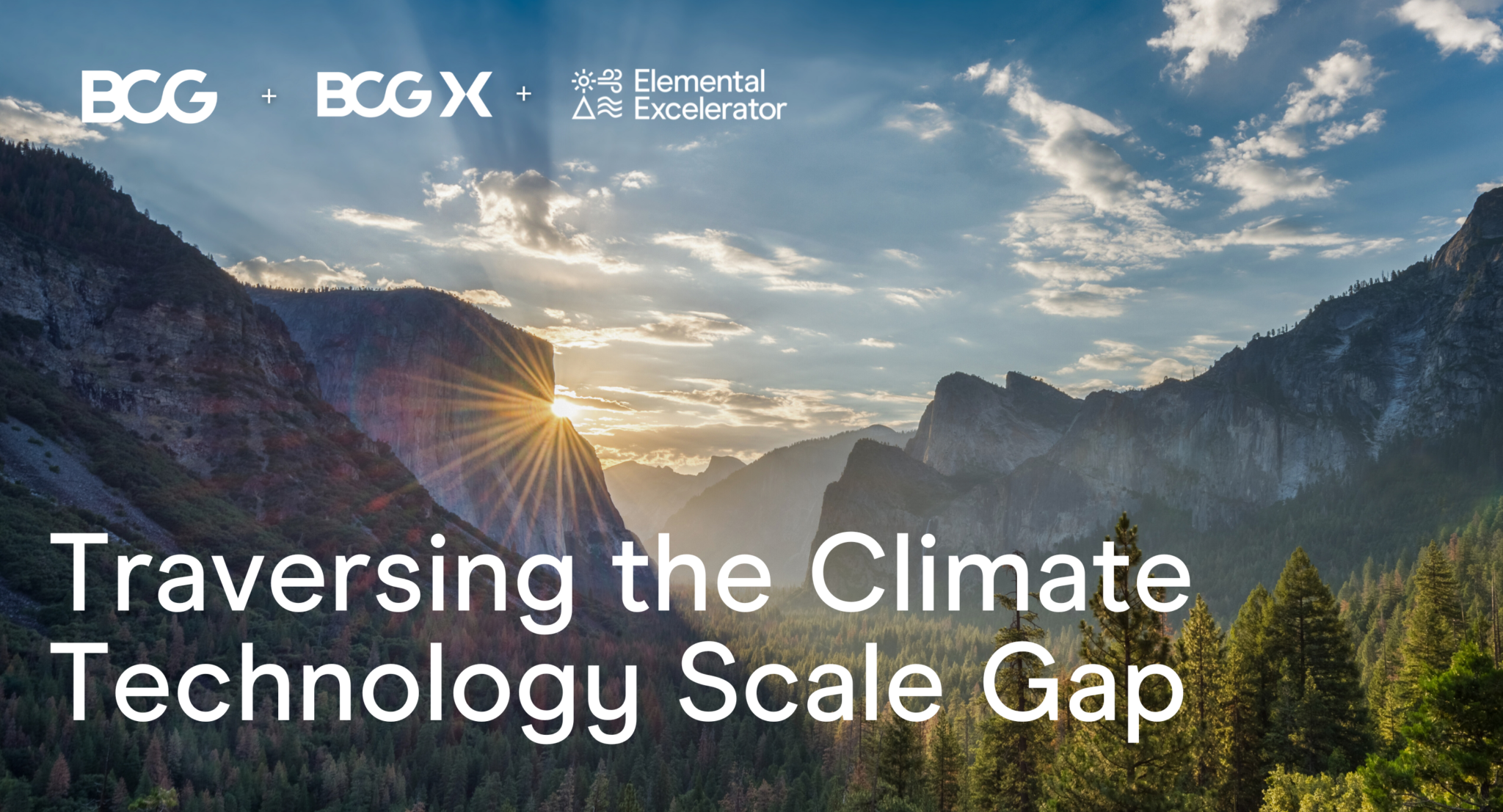
At Interactive 2021, we hosted a series of discussions spanning policy, technology, activism, and more, featuring a diverse array of perspectives from entrepreneurs and policymakers, artists and investors, students and industry veterans.
We heard valuable guidance on building a more inclusive future in a session designed to support the community leaders and investors who have the unique power and responsibility to ensure the world’s next Amazons, Teslas, and Ubers are built for and by a community as diverse as the globe we inhabit.
“We’re talking about decades and decades of disinvestment, negligence, exclusion, and we’re talking about the momentum from a society-wide awakening that happened last year,” said Sara Chandler, Elemental’s Managing Director of Equity & Access, to open the discussion. “How do we take advantage of the current timing? How do we ensure that what we’re doing has the positive benefit and impact that we want to see?”
Here are some of key insights our guests shared about addressing funding disparities, breaking down bias barriers, and creating system-wide accountability.
The state of play
“The numbers don’t lie.” Taj Ahmad Eldridge, General Partner at Include Venture Partners, pointed out that while VCs deployed a record $150 billion in 2020, only $1 billion of that went to Black founders. “We want to make sure that the next generation of fund managers understand the value of diversity and know it’s not a moralistic issue, but it’s a way to make money and it’s a way to really impact communities of color.”
You had one job. Referencing a recent McKinsey study that showed that companies in the top quartile for ethnic and cultural diversity handily outperform those in the bottom, Powerhouse CEO Emily Kirsch said that investors risk failure by overlooking diversity. “For all of us who have a fiduciary responsibility to our investors,” she said, “if we are not emphasizing DE&I within our own teams and within our portfolio company founders, we are literally not fulfilling the primary responsibility that we have to those who have backed us.”
It all adds up to a huge opportunity for investors, said Kerry Bowie, Managing Partner at the Majira Project and Founder of Browning the Green Space. “You’re not giving up on quality when you invest in Black and Brown founders … They bring back returns at the same level, or actually better because the road traveled is usually longer, harder, tougher. They’ve gone through the test.”

Breaking down bias barriers
Diversifying their own teams is the surest way for VC firms to eliminate bias around founders from underrepresented backgrounds, said Kapor Capital’s Lisa Molinaro. “The biggest thing anyone who has capital to deploy can do is to look at who you are hiring to make decisions about where that capital goes.”
Another persistent barrier found in VC decision-making processes is that investments too often require unanimity. “There’s always one person with a bias that just can’t get comfortable with the Black guy’s deal or was worried that she’s getting pregnant,” said Brian Brackeen, General Partner at Lightship Capital. “If eight out of nine investment professionals think your deal is good, it’s a good deal. It’s only locking out women and minority founders from funding — that’s literally the only success of a unanimous vote.”
Founders have the power. The investors need them as much as they need the investment, said Taj Ahmad Eldridge from Include Venture Partners. That means they can choose who gets to benefit from their work. “I’m a former founder, and I wouldn’t have a job now without founders.”
He pointed to ChargerHelp! (Cohort 9), a company founded by two Black women that recently closed an oversubscribed round, as an example of seizing the opportunity to pick the right investors. “That’s what the future is going to be about,” Taj said.

Measuring impact and getting results
As gatekeepers, VCs have an outsized influence on which companies succeed and go on to touch people’s lives and communities, said Marcus Hollen, Senior Associate at Black Capital. “Having more awareness, more transparency around what these LPs are looking for and holding them accountable to push diversity forward … that’s how we have long term systemic change.”
Don’t overlook geography. Brian Brackeen said that investors who are only backing underrepresented founders in New York and San Francisco are still missing out on the the country’s vast potential. “If you’re not investing in ninety five percent of those areas and hoping to get a diverse portfolio, that’s not going to work,” he said.
Setting a goal for funding startups with underrepresented founders and holding yourself accountable can change how investors do diligence and trickle down into the companies they back, said Powerhouse’s Emily Kirsch. “Early in the process, we’ll say to every founding team, how do you think about DE&I as you build your company?” she said. “They don’t have to be perfect. We are far from perfect, but we have to know that this is something that they want to devote time and attention and resources to.”
Just say so. As an investor, making clear what you want to see in a company can lead to rapid results, said Elemental’s Managing Director of Engagement & Innovation Danielle J. Harris. “We go through our applications and we ask ‘What is the diversity of your company?’ They may not make it into the cohort, but they’ll come back and reapply and you can see that change happening.”
The network effect. Beyond backing specific companies, investors are ideally positioned to use their influence to make connections and build community, said Kerry Bowie. “Get involved with your time, your talent, your treasure. Write checks, if you can, not just to entrepreneurs but also to the entrepreneur support organizations,” he said. “We’re dealing with climate change, with a tremendous wealth gap. We need everybody involved.”
• • •
For more insights, see the Interactive Hub, where we rounded up resources from our speakers and each of the conversations. In addition to podcasts, articles, and visuals, you also can find career, education, and investment opportunities. We hope you enjoy it and share it with your network.




